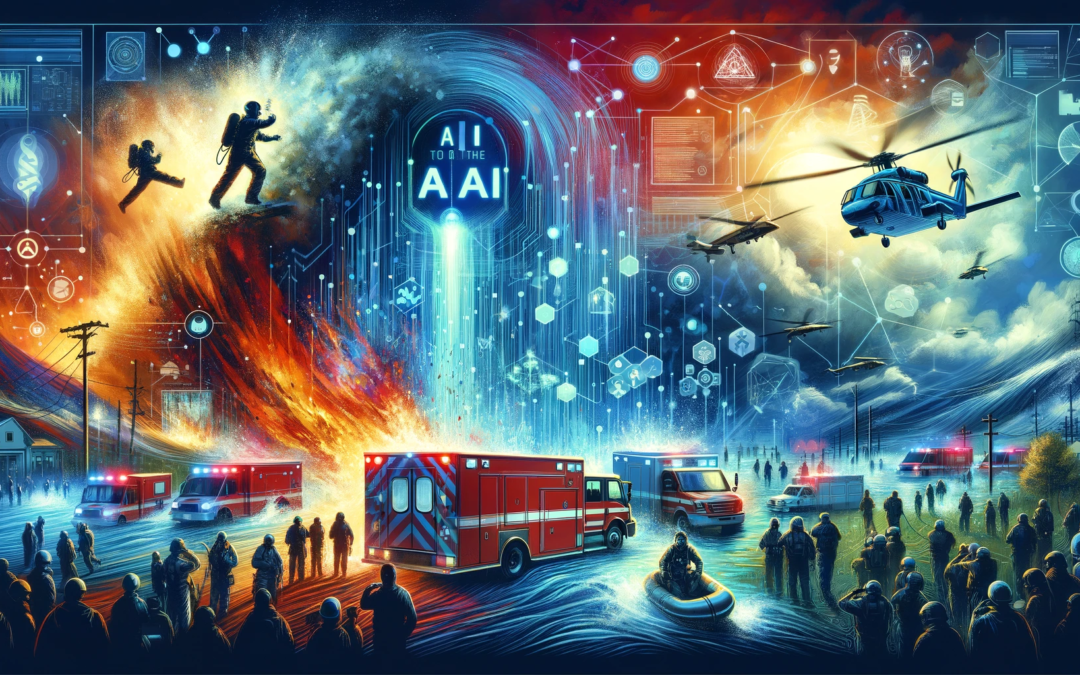In the face of natural disasters and emergency situations, effective response and management are crucial for saving lives and minimizing damage. However, the challenges in handling these crises are immense. This is where the power of AI comes into play, revolutionizing emergency response and disaster management.
Predictive Analysis for Disaster Preparedness:
AI technologies have made significant strides in predicting and anticipating natural disasters. By analyzing vast amounts of data, AI-driven systems can provide early warnings and help communities prepare for impending disasters. For instance, AI algorithms can analyze seismic activity patterns to predict earthquakes, or monitor weather patterns to forecast floods and hurricanes.
AI in Coordinating Emergency Response:
When disaster strikes, coordinating emergency response efforts becomes a complex task. AI plays a crucial role in optimizing resource allocation and response strategies. AI-powered platforms can analyze real-time data, such as the location and severity of the disaster, to coordinate rescue operations effectively. This technology has been instrumental in saving lives and reducing response time in various emergency situations.
AI for Damage Assessment and Recovery:
Post-disaster, assessing damage and planning recovery efforts are critical tasks. AI tools can analyze satellite imagery and ground data to evaluate the impact of the disaster accurately. This information helps guide rehabilitation efforts and ensures that resources are allocated where they are most needed. AI’s ability to process and analyze vast amounts of data enables efficient and effective decision-making in the recovery phase.
Challenges and Ethical Considerations:
While AI brings immense potential to emergency response and disaster management, it also presents challenges and ethical considerations. Reliability is a significant concern, as AI systems must provide accurate predictions and responses. Additionally, ensuring data privacy and maintaining decision-making autonomy are important ethical considerations. It is crucial to address these challenges to harness the full potential of AI in emergency situations.
The Future of AI in Disaster Management:
Looking ahead, the future of AI in disaster management holds great promise. Advancements in AI technologies, such as machine learning and natural language processing, will further enhance emergency response capabilities. AI-powered drones and robots may play a more significant role in search and rescue operations. However, as AI continues to evolve, it is essential to consider the long-term impact on disaster management strategies and ensure responsible and ethical use of these technologies.
Engaging with the Audience:
We would love to hear from you! Have you ever encountered AI-driven emergency response or disaster management tools? Share your thoughts and experiences with us. Let’s discuss the potential and limitations of AI in this critical field.
Conclusion:
AI has the power to transform emergency response and disaster management. By leveraging predictive analysis, optimizing response coordination, and aiding damage assessment and recovery efforts, AI is revolutionizing how we handle crises. However, it is crucial to use these technologies responsibly and ethically, addressing challenges and ensuring reliability. Together, we can harness the potential of AI to save lives and protect communities in times of need.
Meta Description: Discover how AI is revolutionizing emergency response and disaster management. Explore the predictive analysis, response coordination, and damage assessment capabilities of AI in crisis situations.










